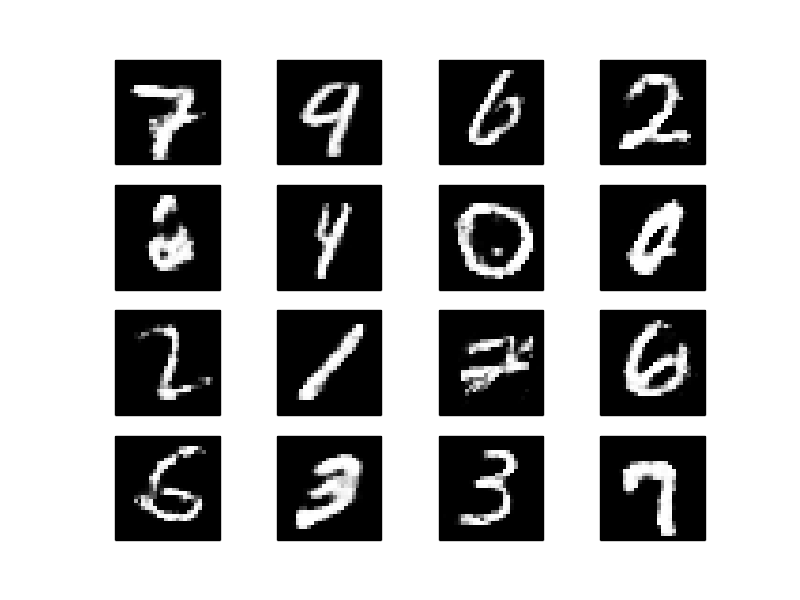Generative networks for random MNIST digits¶
This demo of an MNIST generator is based on the work of I. Goodfellow, J. Pouget-Abadie, M. Mirza, B. Xu, D. Warde-Farley, S. Ozair, A. Courville, Y.Bengio. Generative Adversarial Networks, June 2014.
The generators trained as part of the published experiment have been wrapped in sklearn-theano, and can easily be used to fetch an arbitrary number of plausible MNIST digits.
Additionally, this example also shows how to make an automatically updating plot with the ‘TkAgg’ backend to matplotlib.

Script output:
Iteration 0
Iteration 20
Iteration 40
Iteration 60
Iteration 80
Python source code: plot_mnist_generator.py
import matplotlib
matplotlib.use('TkAgg')
import matplotlib.pyplot as plt
import numpy as np
import time
from sklearn_theano.datasets import fetch_mnist_generated
X = fetch_mnist_generated(n_samples=1600, random_state=1999)
# plotting based on
# http://stackoverflow.com/questions/4098131/matplotlib-update-a-plot
num_updates = len(X) // 16
f, axarr = plt.subplots(4, 4)
objarr = np.empty_like(axarr)
for n, ax in enumerate(axarr.flat):
objarr.flat[n] = ax.imshow(X[n], cmap='gray', interpolation='nearest')
ax.get_xaxis().set_ticks([])
ax.get_yaxis().set_ticks([])
plt.show(block=False)
for i in range(num_updates):
for n, obj in enumerate(objarr.flat):
obj.set_data(X[i * len(objarr.flat) + n])
plt.draw()
time.sleep(.08)
if (i % 20) == 0:
print("Iteration %i" % i)
plt.show()
Total running time of the example: 19.75 seconds ( 0 minutes 19.75 seconds)

